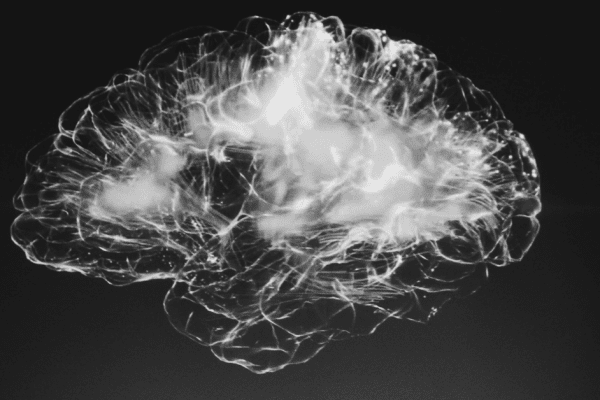
Eating disorders are serious mental illnesses that involve severe abnormalities in eating and weight control behaviours, with high levels of psychological stress and risks of severe short- and long-term medical complications.
Characterised by disturbances of eating behaviours and a core psychopathology centred on food, eating, and body image concerns, eating disorders and disordered eating affect over 16% of the Australian population or around four million people.
There are around one million Australians, or 4% of the population, suffering from an eating disorder at any one time and eating disorders are on the rise around the world.
“So many Australians, from all age groups and walks of life, are suffering from disorders such as anorexia, bulimia, and binge eating disorder,” says Dr Leanne Barron, general practitioner with a special interest in eating disorders at The Banyans Health and Wellness. “Almost triple that number are affected in some way by the disorder – be it a sister, mother, father, son, aunt, partner, or carer.”

There are many different eating disorders, and the journey for each person with an eating disorder is different.
Individual eating disorders can occur in isolation, but it is also common for several eating disorders to exist together, and alongside other mental illnesses such as anxiety and depression.
Eating disorders do not discriminate between age, gender, race, or socioeconomics, and can affect anyone.
Anorexia nervosa and bulimia nervosa are the two most common eating disorders, and the disturbance in perception of body shape and weight is an essential feature of both. In Australia, 2% to 3% of adolescent and adult women, around 303,600, satisfy the diagnostic criteria for anorexia or bulimia.
What is an eating disorder?
Anorexia Nervosa
Anorexia nervosa is a mental illness associated with significant physical debility, including a refusal to maintain a minimally normal body weight. Anorexia is characterised by body image distortion, coupled with an obsessive fear of gaining weight or becoming overweight, and often coincides with increased levels of exercise.
“People with anorexia are not lacking moral strength and have not made a lifestyle choice to suffer anorexia,” says Dr Barron.
“In fact, often they say they started out innocently, just ‘trying to be healthy’, but the effects of dietary restriction on people with susceptible biochemistry can be severe, leading to devastating behaviour and mood changes. People often tell them they should ‘just eat’, but to the person whose whole being has been engulfed by the eating disorder, this is impossible.”
Teenagers who develop anorexia nervosa have a mortality rate of almost 20% over 20 years, which is five times higher for sufferers than compared to others of the same age.
Anorexia has the highest mortality rate of any medical and psychiatric disorder in adolescence.
Effective treatment for anorexia is available. Treatment involves a multidisciplinary approach and, as there are many aspects to treatment, it can take time to have a full and lasting effect.
Anorexia has an average duration of five to seven years, but for some people, it can be a lifelong illness.
The main difference between anorexia and bulimia is that anorexia is self-starvation involving significant weight loss, while people with bulimia are, by definition, at normal weight or above, which often makes it more difficult to recognise.

Bulimia Nervosa
Bulimia is characterised by repeated binge eating episodes followed by compensatory behaviours such as self-induced vomiting or misuse of laxatives, diuretics or other medications, fasting, or excessive exercise.
Binge eating episodes are associated with a sense of loss of control and are immediately followed by feelings of guilt and shame, which lead to compensatory behaviours, including immediate purging. The causes of bulimia are unknown, but it is believed a combination of factors are at play here including genetics and biology, together with societal expectations and unrealistic social media images.
Bulimia often starts with dieting for weight loss. Food deprivation can trigger a starvation reaction, leading to an uncontrollable urge to eat, resulting in a substantial binge. The ensuing extreme sense of guilt and shame force compensatory behaviour of purging and excessive exercise, creating a cycle of diet/binge/purge/exercise that becomes uncontrollable over time.
Recovery from bulimia is possible, with around 50% of people recovered within 10 years of diagnosis, treatment, and support.

Binge eating disorder
Binge eating disorder is identified by repeated episodes of binge eating, often with a sense of loss of control while eating, but without compensatory behaviours such as vomiting. In many ways, binge eating disorder is mentally and emotionally similar to bulimia in that the individual feels a sense of lack of control over their eating.
Only around half of the people with binge eating disorder will be overweight, and it’s believed that more males than females have binge eating disorder than any other eating disorder.
Selective eating disorder
Selective eating disorder (SED), also known as Avoidant/Restrictive Food Intake Disorder (ARFID), is distinguished in that people reduce consumption of certain foods due to preferences in taste, colour, or texture. Some people can have difficulty digesting certain foods, and therefore are unable to eat a healthy balance of calories or nutrition.
SED/ARFID is often viewed as a stage of childhood that is overcome with age, however, some individuals continue to deal with this disorder into their teens and throughout their adult lives.
Disordered eating
Disordered eating describes a range of irregular eating behaviours that may or may not warrant a diagnosis of another eating disorder.
Disordered eating refers to a wide range of abnormal eating behaviours, many of which are shared with diagnosed eating disorders. The main differentiation in disordered eating from an eating disorder is the severity and frequency of behaviours.
EDNOS – Eating Disorder Not Otherwise Specified
EDNOS refers to disorders that do not comply with standards when an individual meets many, but not all the criteria applied to other eating disorders. This can include behaviour such as repeatedly chewing and spitting out, but not swallowing, large amounts of food.
In females, they may meet all the criteria for anorexia, except loss of regular periods, or despite significant and swift weight loss, a person’s weight is still within the normal range for their height and gender.
How to recognise an eating disorder
Related: Signs and symptoms that your child might have an eating disorder
What causes an eating disorder?
The exact causes of eating disorders are unknown, but research suggests that a combination of biology and genetics contribute to the increased likelihood of someone developing an eating disorder. Certain genes may increase the risk of developing an eating disorder, along with changes in brain chemistry. The common preceding factor in development of all eating disorders is dietary restriction.
Related: Brain Chemistry and Eating Disorders
Seek help immediately
If you believe someone you care for might have an eating disorder, speak up now.
Early access to help and treatment for those with an eating disorder enhances their chances of recovery.
Related: How can I help someone with an eating disorder?
As an eating disorder is a complex psychological and physical illness, a comprehensive biopsychosocial approach is imperative in treating the condition. Dr Barron approaches all her eating disorder patients from this treating perspective.
The extended eating disorder treatment team at The Banyans Health and Wellness may comprise other allied health specialists including psychologists, counsellors, and dietitians.
It is important to note that patients who are acutely unwell with eating disorders may require hospitalisation and physical stabilisation prior to a stay at The Banyans Residence.
If you or someone you love would benefit from a program at The Banyans Health and Wellness Residence, please call +61 1300 BANYAN (1300 226 926) for a non-obligatory, confidential discussion or fill in our enquiry form below.














